#The Trial
Text
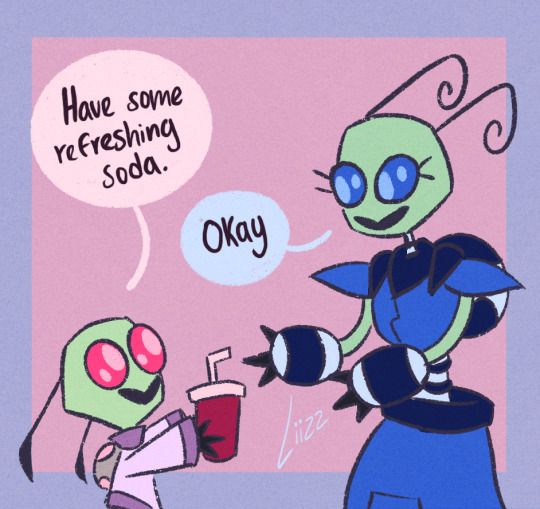



The Trial be like:
Based on this post
#invader zim#the trial#tallest Miyuki#tallest spork#the almighty tallest#Irken smeet#scientist zim#my art#2024#liizz
899 notes
·
View notes
Text
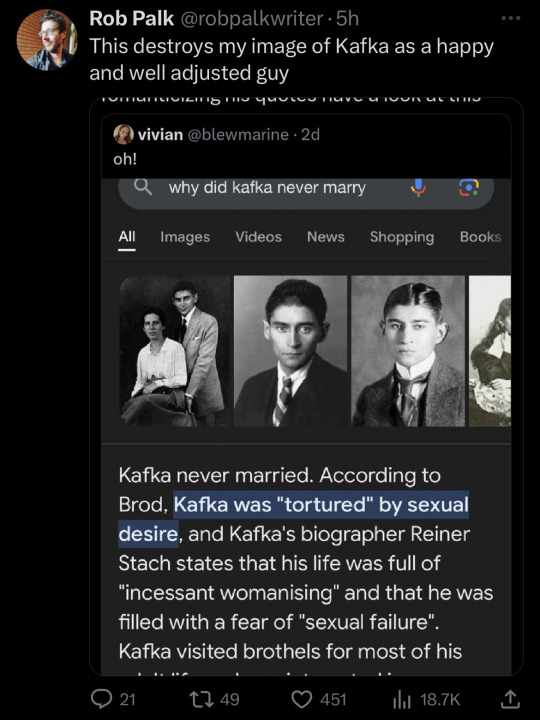
I genuinely want to know how one reads Kafka and then comes to the conclusion that the man was a “happy and well adjusted guy.” No hate to the og poster, I just think it’s kind of funny.
#thought it was a joke at first but the replies were funny too#gregor samsa#kafkaesque#Kafka#Franz Kafka#the metamorphosis#the trial#letters to milena#letter to his father#classic literature#absurdism#existentialism#philosophy
855 notes
·
View notes
Text
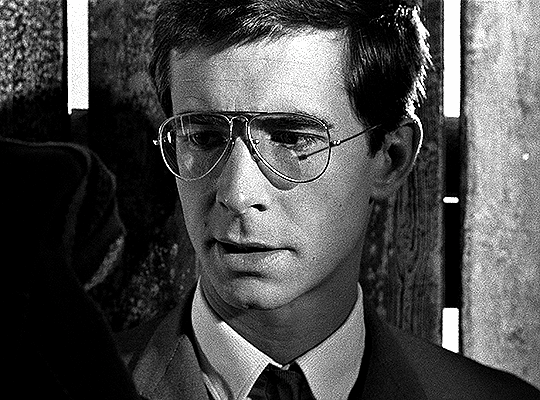

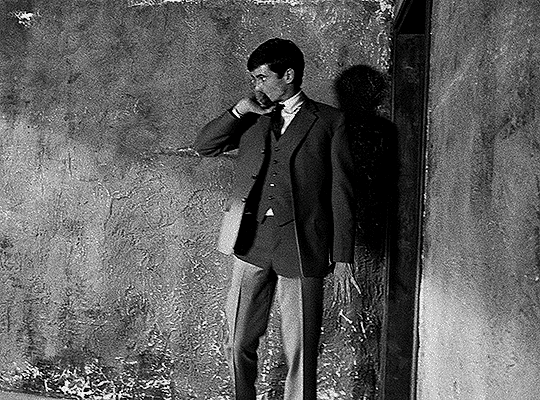
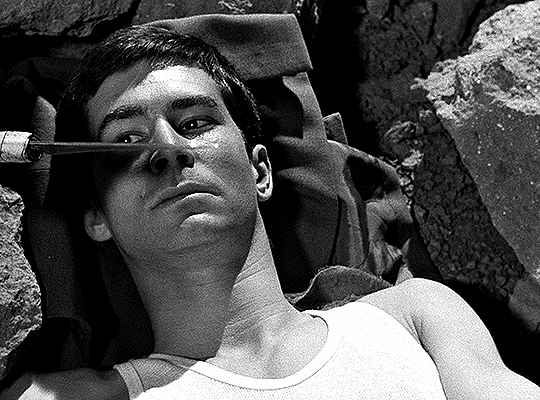


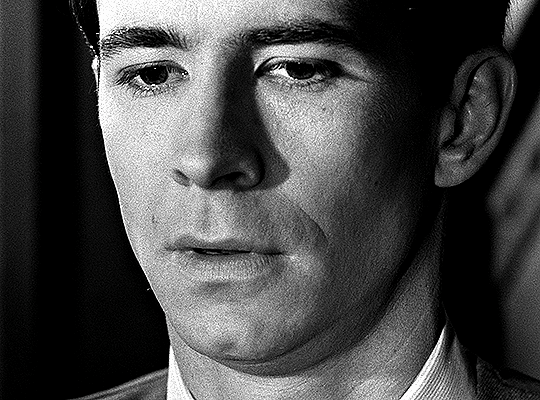
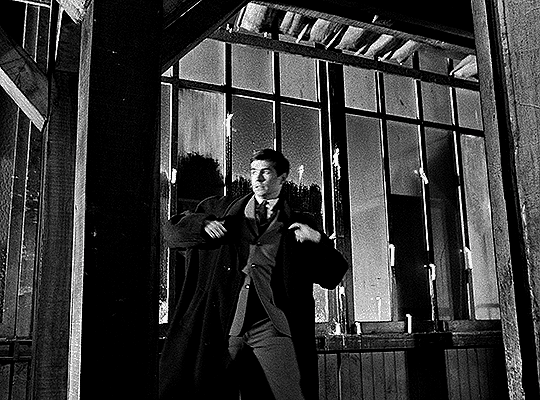



Anthony Perkins as Josef K.
The Trial (1962) dir. Orson Welles
#The Trial#Le Procès#Anthony Perkins#Orson Welles#noirvember#guys#movies#gay subtext#*#**#filmedit#anthonyperkinsedit#usertennant#albertserra#userksusha#ritahayworrth#userlenie#userelissa#uservienna#userteri
1K notes
·
View notes
Text

Ep.46.01- The People vs. Glenn Close
#dndads#dndads cover project#dndads art#dndads fanart#dndads odyssey#dndads s1#dungeons and daddies fanart#the trial#ratticus finch#bill close#Episode 46.01
313 notes
·
View notes
Text

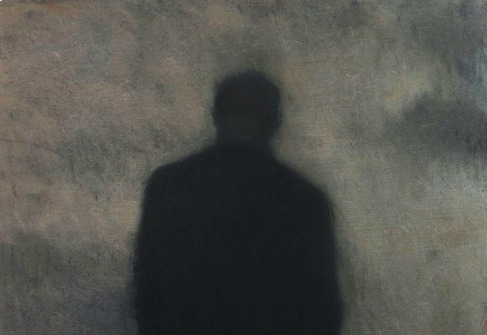
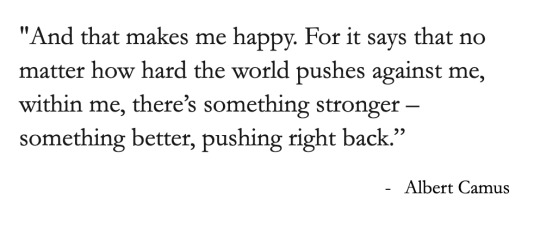

#albert camus#classics#existentialism#sylvia plath#franz kafka#quotes#dead poets society#classical quotes#penguin classics#book quote#the stranger#the secret history#the trial#motivating quotes#booklr#book quotes#writers on tumblr#poetry#poems#nietzche#dostoevksy#poets on tumblr#classical literature#literature#bookblr#absurdism#deep quotes
450 notes
·
View notes
Photo
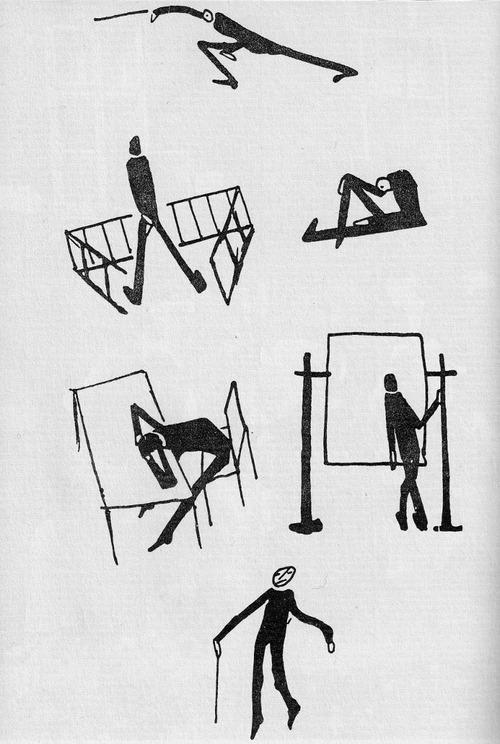
Franz Kafka, Sketches from around the time of The Trial
“Please burn every bit of it,” he wrote
2K notes
·
View notes
Text
I only fear danger when I want to.
- The Trial, Franz Kafka
#can't believe i haven't posted this one on this blog yet??#franz kafka#the trial#dark academia#light academia#classic academia#literature#poetry
82 notes
·
View notes
Text
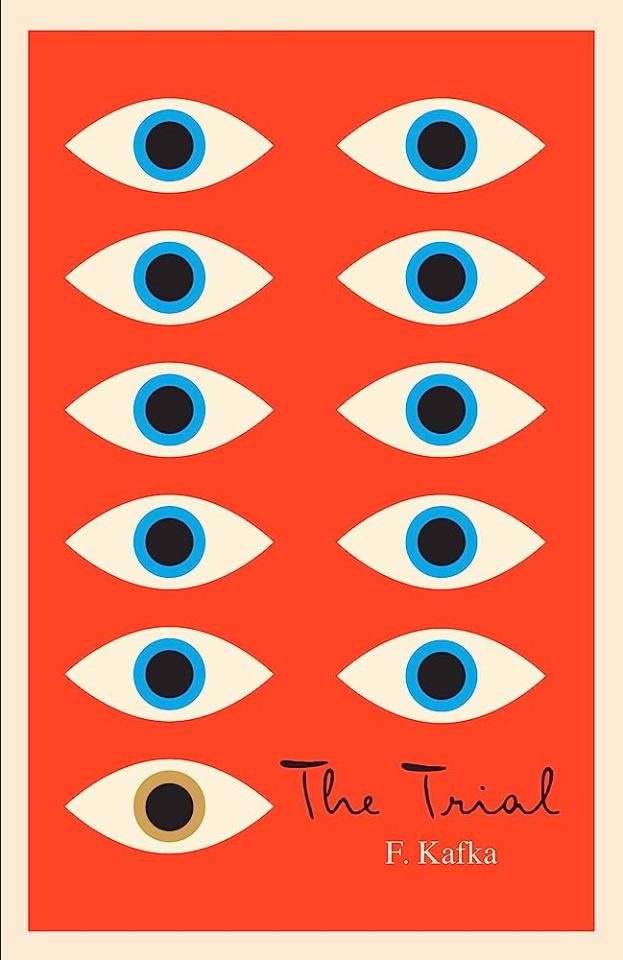
The Trial, Franz Kafka, 1925
90 notes
·
View notes
Text
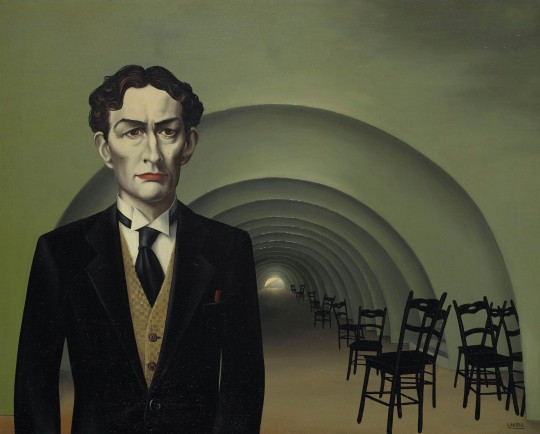
Félix Labisse (1905-1982) — Jean-Louis Barrault in "The Trial" by Franz Kafka [oil on canvas, 1947]
142 notes
·
View notes
Note
Something I've noticed is that, in what's apparently Lestat at the trial, he looks... Pretty good? Perfectly healthy, sane and presentable. I think Armand is going to play up the idea that Lestat is ultimately the one most responsable for Claudia's death by accusing her at the trial in the first place and essentially asking for her death. Then we'll get a bit of the "real version" later, either in another episode, s3, or even just a few minutes after they tell it like the ep 7 flashbacks (not talking about the "big twist" or anything, just something I've been thinking in general).
Well, I mean that is in line with the book, Armand tortures Lestat and puts him on stand, half mad but in proper clothes, to testify. And yes, I do think that we will get to see the difference between what is show and what is the real trial, probably because Daniel will dig deep once more 😈
Tbh I think that part will be quite close to what Louis and Lestat recount later… though of course having Armand tell will definitely bring in another perspective.
Ultimately I think they‘ll make it clear why they had to die though, and that simple, very banal fact will be harrowing in and by itself: they were in Armand‘s way 🤷🏽♀️
#anonymous#asks#ask nalyra#interview with the vampire#iwtv#amc iwtv#amc interview with the vampire#lestat de lioncourt#armand#the trial
34 notes
·
View notes
Text
Isn’t it, after all, the sense that Kafka—the voice on the page—is firmly in touch with reality that makes it feel acceptable to laugh at the deranged goings-on in The Trial? His jokes are technical achievements, yes, but they also speak to a feeling of loneliness that typifies the modern condition. Kafka himself couldn’t resist laughing when asked to read aloud from his work. To orchestrate this kind of laughter—to borrow a word from Wallace—might have offered relief from the relentless (and political) self-criticism that drove Kafka to conceal his writings. Kafka’s suppression of information gets us to let our emotional guard down. He contrives narrative tension so that he can shock us, confronting us anew with injustices to which we’ve become numb.
— Benjamin Winterhalter, Franz Kafka's The Trial—It's Funny Because It's True
114 notes
·
View notes
Text
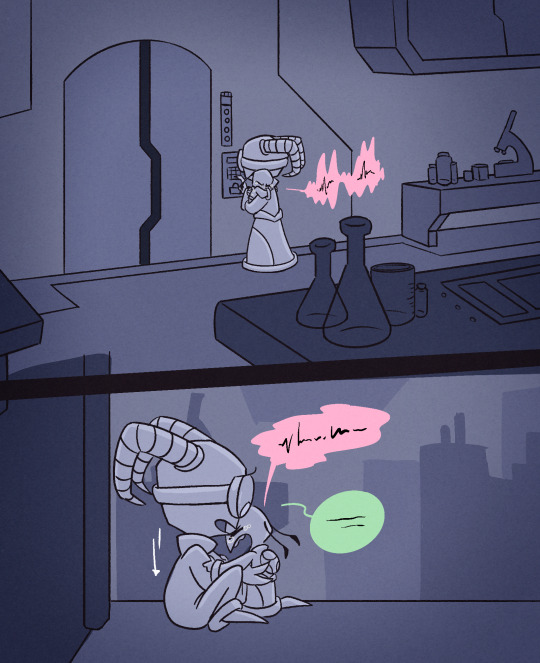
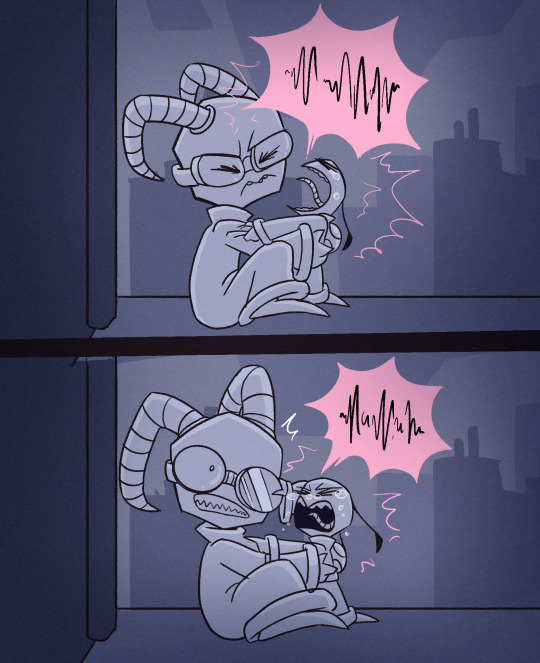


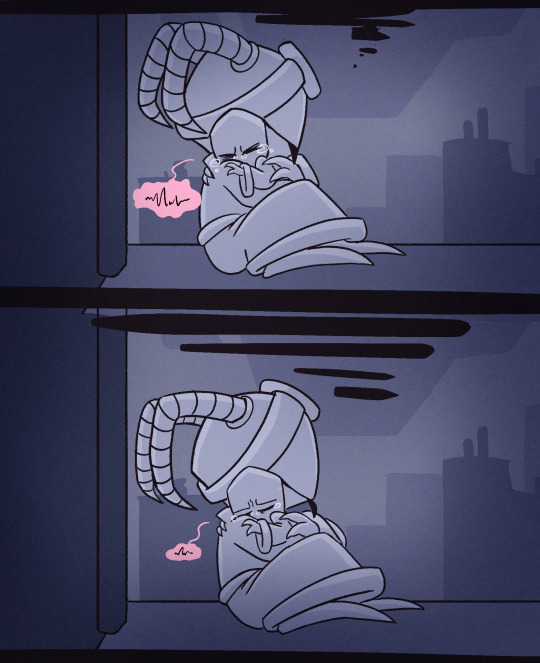
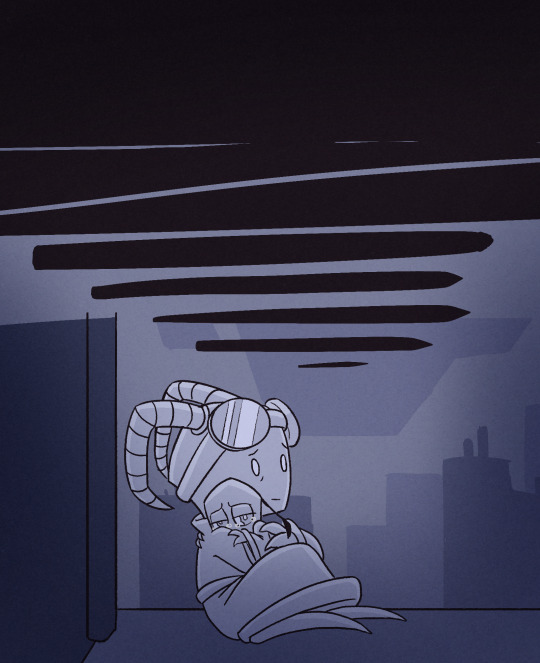
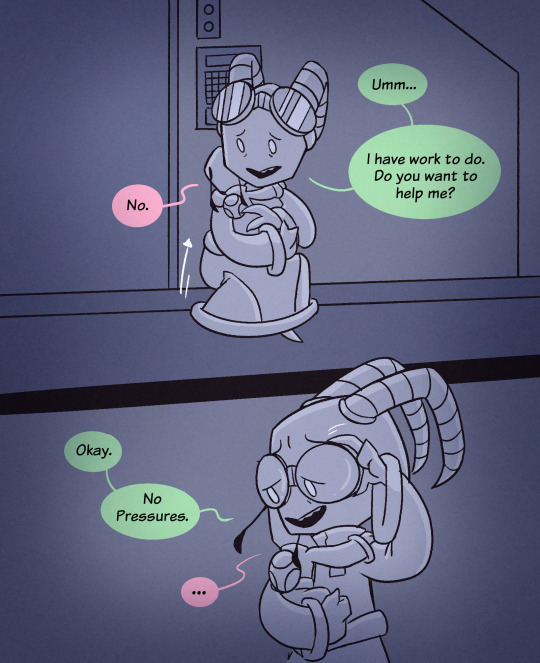
Part 1 | Part 2 | Part 3 | Part 4 (Fin)
More pages under the cut 👇👇👇







--
In case you're wondering, yeah it's the thing from issue 13 but with more of a toy-like design.

#invader zim#invader zim fanart#space junk au#pre space junk au#spacejunk au#the trial#lard nar#vortian#baby zim#smeet#irken#my art#2024#liizz
541 notes
·
View notes
Text




I don’t pretend to be a martyr, no.
Not even a victim of society?
I am a member of society.
Anthony Perkins in The Trial (1962) dir. Orson Welles
"Orson thought it was important to use whatever a famous actor brings with him to a role. The closetedness of Perkins' homosexuality [...] - he thought that brought a whole wonderful subtext. I remember him saying that they never talked about it, but he felt that Perkins definitely knew what he was doing." -Henry Jaglom, a friend of Orson Welles
42 notes
·
View notes
Photo
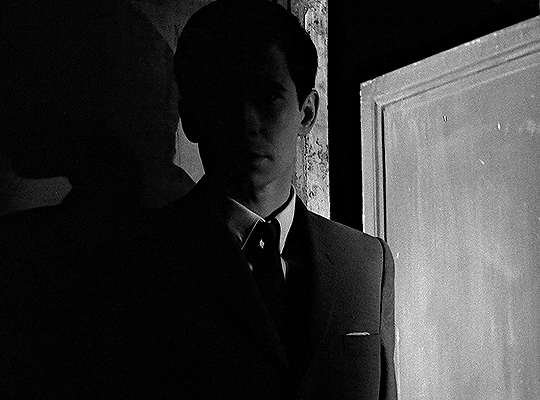
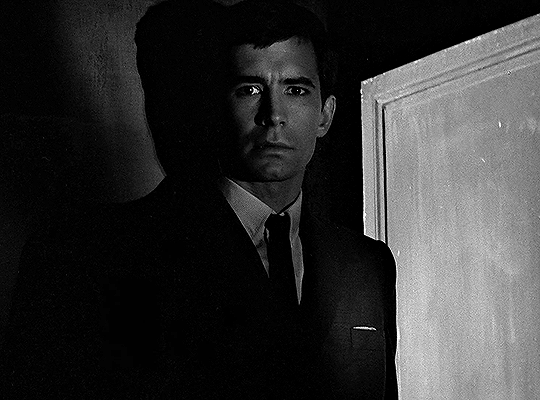
Anthony Perkins as Josef K.
in The Trial (1962) dir. Orson Welles
#The Trial#Anthony Perkins#Orson Welles#noirvember#gay subtext#guys#movies#*#**#filmedit#anthonyperkinsedit#usertom#usergina#useralex#ritahayworrth#userlenie#flashing tw
627 notes
·
View notes
Text
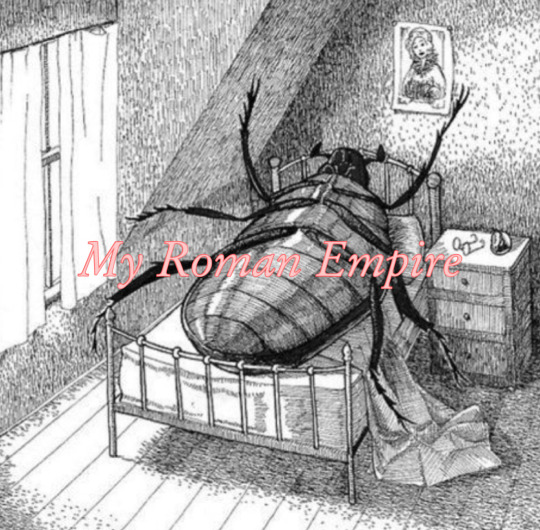
#femcel#sadgirl#coquette community#coquette#girlblogging#lana del rey#sadcore#gone girl#it girl#coquette dollete#gaslight gatekeep girlboss#lizzy grant#cotcc#dykttatuob#franz kafka#kafka#kafkaesque#metamorphosis#gregor zamza#the trial#booklr#roman empire#girlblogger#girlhood#the virgin suicides#gloomy dollette#doodle#tw depressing thoughts
91 notes
·
View notes
Text
by Ruth Wisse
Hamas recently beat the competition with a demonstration of savagery unlike the earlier improvised pogroms in Europe to which it has been compared. October’s slaughters were plotted with crucial input from Gazans employed in Israeli homes they had scouted and mapped for the purpose, making this the first military campaign designed to culminate in acts of beheading, torture, and rape of predetermined victims. As attempts to destroy Israel through conventional warfare had only made Israel militarily stronger, the new tactics aimed at destroying the Jews’ will to remain among antagonists sworn never to leave them in peace. More than to intimidate, these attacks were made to demoralize.
Survivor-witnesses describe new refinements of psychological warfare. Hamas murdered parents and children in each other’s presence so as to sharpen the survivors’ agony. They took hostages—not, as others do, for eventual exchange—but to taunt the country with images of prisoners’ suffering, and fear that many would never be returned. Every Jewish value—respect for women, honoring the human being who was made in the image of God—was gleefully defiled.
As for the Jews living in nearby Gaza, many of them self-described Jewish “peaceniks,” they had prided themselves on the medical help and hospitality they extended to their Gazan neighbors, persuaded that cooperation was obviously to everyone’s benefit. The terrorists exploited the Jews’ desire for peace as a means of entrapment and further opportunity for torment. By attacking on a Jewish holiday and a secular festival, they intended to destroy the Israelis’ joy in life. Anyone reading Dan Senor and Saul Singer’s exhilarating book about the collective strengths that constitute The Genius of Israel will recognize how Hamas turned precisely those virtues into weapons of torture to tear the Jewish people apart.
October’s slaughters were plotted with crucial input from Gazans employed in Israeli homes they had scouted and mapped for the purpose, making this the first military campaign designed to culminate in acts of beheading, torture, and rape of predetermined victims.
Nor does this exhaust their inventiveness. The Arabs’ strategy of martyring generations of their own people in the cause of eliminating Israel dates back to the 1947 refusal of Arab leaders to accept the partition of Palestine into two states—in order to keep Arabs perpetually homeless. Arabs were to remain permanently displaced as evidence of Israel’s “occupation” while Israel integrated the over 800,000 Jewish refugees from Arab lands and granted participatory citizenship to over 2 million Arabs who chose to remain in its boundaries.
Taking this tactic of martyring their fellow Arabs to a new level, Hamas turned Gaza into suicide central. Above ground, residents were allowed to conduct a quasi-normal life, knowing that, below ground, every school, every hospital, and many private homes were booby-trapped for the Israelis whom their leaders would lure into their cities. The IDF continues to uncover a tremendous amount of infrastructure built over years, confirming Hamas’ intention of invading and killing Israelis en masse. In the words of one of its soldiers “[It] is clear they expected us to arrive and laid plans to exact a cost in the form of IDF casualties.” The attack of Oct. 7 had to be monstrous enough to provoke Israel into full-scale war in the hope of rescuing the hostages and destroying the terrorists—a plan that would also ensure the collateral death of as many Gazans as possible to attract Western sympathy.
33 notes
·
View notes